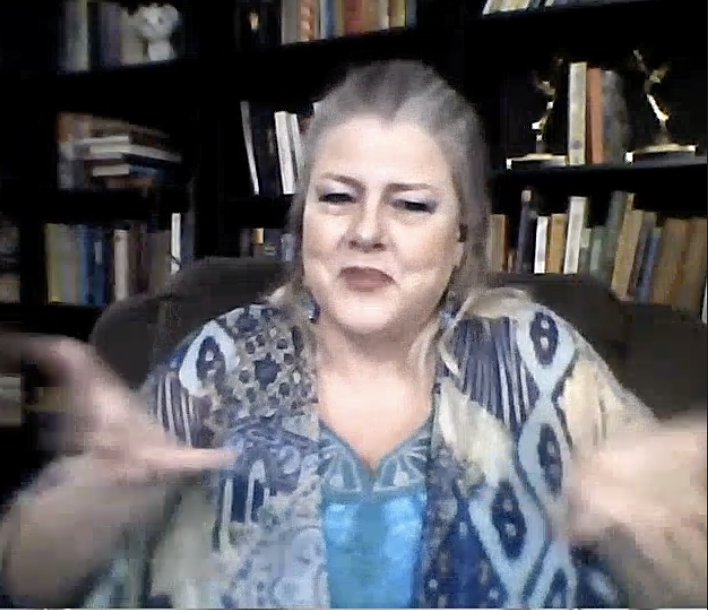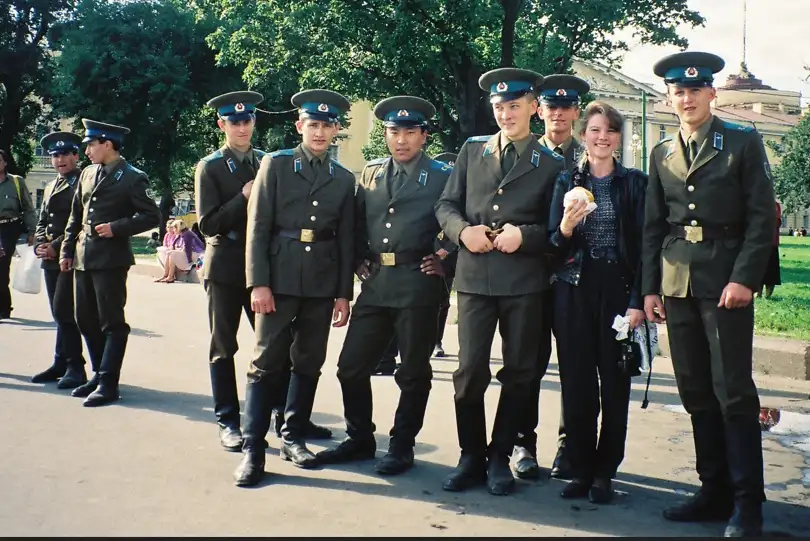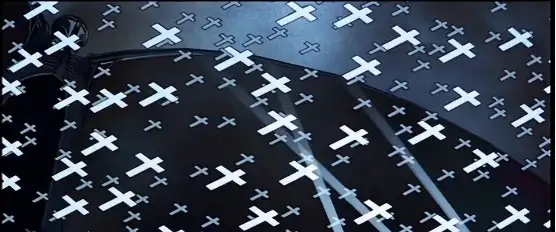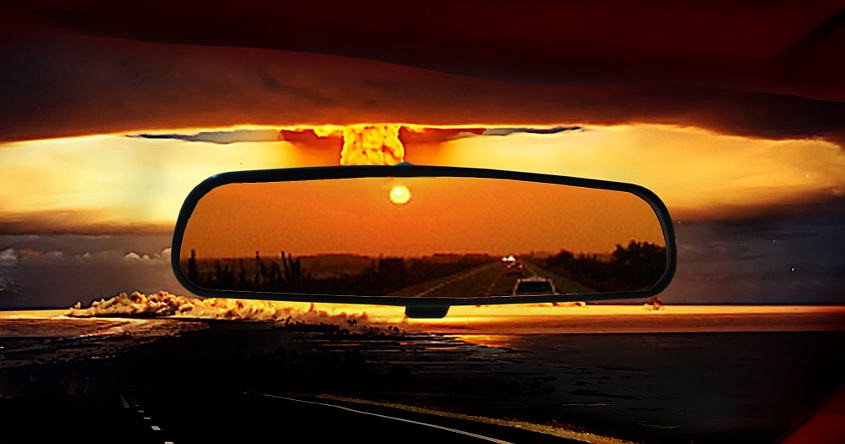Rock and Roll and Russia: When The Wall Came Down and The Wind of Change Blew Through
DEFEAT CAPITALISM AND ITS DEADLY SPAWN, IMPERIALISM
ecological murder •
Deborah L. Armstrong
Deborah L. Armstrong
Author’s note: I wrote this after reading Scott Ritter’s article “Roger and Me.” I definitely recommend checking out Randy Credico’s podcast with Major Ritter and Roger Waters!
It was thirty-one years ago.
I was 25, an American woman living in the Soviet Union.
I had arrived there in January, 1991, as a member of a humanitarian project, working at the Television Center in Leningrad as a broadcasting consultant and would-be script-writer for a Russian dating game show (another article about that someday. I promise!) I’d come straight outa the balmy climes of Southern California where 50 degrees Fahrenheit had begun to feel “cold,” and landed smack dab in the middle of Russian Winter.
And it was a thrilling time to be there! The decades-long Cold War was finally ending and here we were, Soviets and Americans, working together, learning from one-another, exchanging ideas, bonding, forming friendships that would last a lifetime.
It doesn’t feel that long ago, to me. In fact, sometimes I can close my eyes and almost imagine I am there again, especially if I listen to Pink Floyd…
Us (us, us, us, us) and them (them, them, them, them)
And after all we’re only ordinary men
Me
And you (you, you, you)
God only knows
It’s not what we would choose (choose, choose) to do (to do, to do)
Forward he cried from the rear
And the front rank died
And the general sat
And the lines on the map
Moved from side to side
Every time I hear that song, it flows over me like a gentle wave. And I remember. And sometimes that wave crashes so hard against my soul that I cannot stop myself from crying.
Black (black, black, black)
And blue (blue, blue)
And who knows which is which and who is who
Up (up, up, up, up)
And down (down, down, down, down)
And in the end it’s only round ‘n round (round, round, round)
Haven’t you heard it’s a battle of words
The poster bearer cried
“Listen son”, said the man with the gun
There’s room for you inside
On long, lonely nights in Leningrad, I listened to “Us and Them” on a cassette given to me by a friend who was a student at Moscow State University.
When I was in Moscow, I had hung out with him and a group of students at MSU and watched “The Wall,” Pink Floyd’s epic psychological musical drama. We even watched it again, at his parents’ apartment, with his family. It is a stunning, mesmerizing film that once seen must be seen again. In fact, I make a point of watching it at least once a year.
However, I must confess that prior to living in Russia, I was not truly a Pink Floyd fan. I knew of the band, of course, and when I was in high school, I liked the “We Don’t Need No Education” song (Another Brick in the Wall). But I didn’t truly come to appreciate the depth and profound genius of Pink Floyd until I watched “The Wall” in Russia.
We don’t need no education
We don’t need no thought control
No dark sarcasm in the classroom
Teacher, leave them kids alone
Hey! Teacher! Leave them kids alone!
All in all, it’s just another brick in the wall
All in all, you’re just another brick in the wall
The Soviet students loved Pink Floyd and though some of them did not speak English, the movie was strikingly clear without an understanding of the lyrics. The symbolism of the video and the unforgettable, iconic animations transcended our cultures and resonated deeply with us all.
I think though, that my Russian friends had an even deeper understanding of the film than I did. At that time, they were cynical about the state, having faced the deprivations of the dying Soviet economy, and many wanted to do away with the old form of government and usher in a democracy similar to what they believed we had in the west. I, on the other hand, still dreamed the American dream.
I don’t think any of us knew then, what would become of that “democracy.”
“Look mummy, there’s an aeroplane up in the sky”
Did you see the frightened ones?
Did you hear the falling bombs?
Did you ever wonder why we had to run for shelter when the
promise of a brave new world unfurled beneath a clear blue
sky?
Did you see the frightened ones?
Did you hear the falling bombs?
The flames are all gone, but the pain lingers on.
Goodbye, blue sky
Goodbye, blue sky.
Goodbye.
Goodbye.
Goodbye.
The Russians certainly must have felt the part about the “bombs” more keenly than I did. In Leningrad, every family had lost someone in World War Two. The brave city held out against a Nazi siege which lasted almost three years. They lived without electricity, with dwindling food supplies, and many froze to death or died of starvation. All that time they heard the bombs falling…
In all, it’s estimated that between 24 and 27 million Soviets died in the Second World War. It’s an unfathomable number. In comparison, Nazi Germany lost nearly 9 million people and Japan lost more than 3 million. The United States lost almost 450 thousand lives. For every American who died in the war, another 53 Soviets were killed. Try to imagine each coffin, stacked one atop the other. It’s hard for the human mind to conceive of so many coffins, but this video will help put it into perspective.
Number of deaths in the WW2 per country
Aside from the bombing of Pearl Harbor, Americans never experienced the terror of a foreign invasion, and certainly not on the scale experienced by the USSR and those European countries where Hitler’s armies marched. Bombs never rained down on New York as they rained down on Leningrad. Americans, by and large, don’t know how it feels to grab your kids by the hands and run, screaming, as your home is blown apart and everything you know is suddenly dust.
For most of us in America, war is a movie. It’s just something happening on a screen that can’t hurt us and doesn’t directly threaten us. It becomes easy to ignore because it’s far away.
Did they get you to trade your heroes for ghosts?
Hot ashes for trees?
Hot air for a cool breeze?
Cold comfort for change?
Did you exchange
A walk-on part in the war for a lead role in a cage?
How I wish, how I wish you were here.
We’re just two lost souls swimming in a fish bowl, year after year,
Running over the same old ground.
What have we found?
The same old fears.
Wish you were here.
My friend from MSU who gave me the cassettes is now a diplomat in Russia’s Foreign Ministry, and I am now a semi-retired journalist. We both still love Pink Floyd, in fact, he got to go see Roger Waters in concert not too long ago, the lucky bastard! He sent me photos.
I am in touch with some of my old friends, from Soviet times, and others have drifted away over the years. But the memory of that special time always feels fresh in my mind. How young we were! Full of so much hope for the future. It was the time of Perestroika and Glasnost. The Berlin Wall had come down only two years before. I even had a piece of it. I still have it, somewhere amid the accumulated clutter of the decades.
It was such a different time. Such a stark contrast to where we are now. Back then, we were looking ahead toward a peaceful future, in which we would be allies, and we talked about the many ways we could help each other and make the world a better place.
I don’t remember if I heard the Scorpion’s song while I was living in the Soviet Union. It came out the year before I went there. It always feels good to hear it now, because we literally lived that song…
Follow the Moskva
Down to Gorky Park
Listening to the wind of change
An August summer night
Soldiers passing by
Listening to the wind of change
The world is closing in
Did you ever think
That we could be so close, like brothers
The future’s in the air
Can feel it everywhere
Blowing with the wind of change
If only we had known what the wind of change would bring in the decades that followed. Not the peace we dreamed of, but another Cold War, and the threat of nuclear Armageddon once again holding the world hostage.
We are currently 100 seconds to midnight.
In my rear-view mirror the sun is going down
Sinking behind bridges in the road
I think of all the good things
That we have left undone
And I suffer premonitions
Confirm suspicions
Of the holocaust to come
The rusty wire
That holds the cork
That keeps the anger in
Gives way
And suddenly it’s day again
The sun is in the east
Even though the day is done
Two suns in the sunset
Could be the human race is run
Like the moment when the brakes lock
And you slide towards the big truck
Oh, no
You stretch the frozen moments with your fear
And you’ll never hear their voices
Daddy, daddy,
And you’ll never see their faces
You have no recourse to the law anymore
And as the windshield melts
And my tears evaporate
Leaving only charcoal to defend
Finally I understand
The feelings of the few
Ashes and diamonds
Foe and friend
We were all equal in the end
About the author:
 Deborah Armstrong currently writes about geopolitics with an emphasis on Russia. She previously worked in local TV news in the United States where she won two regional Emmy Awards. In the early 1990’s, Deborah lived in the Soviet Union during its final days and worked as a television consultant at Leningrad Television.
Deborah Armstrong currently writes about geopolitics with an emphasis on Russia. She previously worked in local TV news in the United States where she won two regional Emmy Awards. In the early 1990’s, Deborah lived in the Soviet Union during its final days and worked as a television consultant at Leningrad Television.Print this article
Unfortunately, most people take this site for granted.
DONATIONS HAVE ALMOST DRIED UP…
PLEASE send what you can today!
JUST USE THE BUTTON BELOW
[/su_spoiler]
![]() Don’t forget to sign up for our FREE bulletin. Get The Greanville Post in your mailbox every few days.
Don’t forget to sign up for our FREE bulletin. Get The Greanville Post in your mailbox every few days.
[premium_newsticker id=”211406″]

This work is licensed under a Creative Commons Attribution-NonCommercial 4.0 International License







